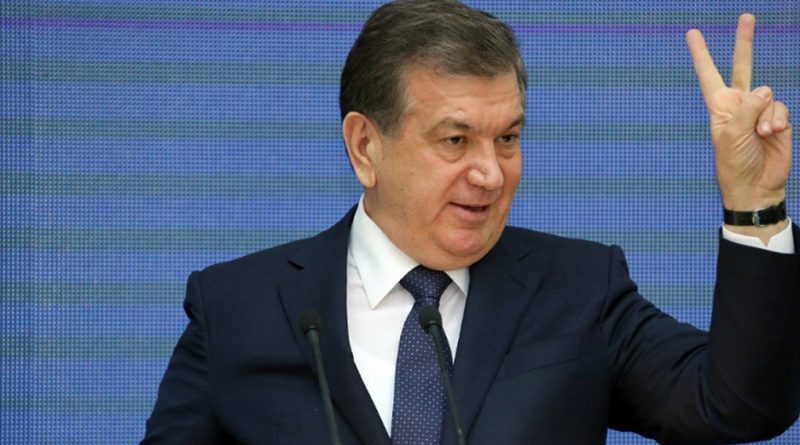Uzbekistan: new law will allow the President to hide his income
The new bill, which obliges officials to report on their income, doesn’t apply to the President, deputies, judges and several other public servants.
The legislative initiative of the Agency for the Development of Public Service under the President doesn’t essentially eradicate corruption in the country’s bureaucratic class and is unlikely to increase the level of state administration.
This conclusion can be reached by the results of the press conference, held on June 11 at the Ministry of Justice, regarding the draft law “On state civil service”. It was discussed by Deputy Minister of Justice Bahrom Kuchkarov and Deputy Prosecutor General Svetlana Artykova together with journalists.
The first paragraph of article 13 refers to the prohibition of holding relatives in the power vertical of public office with the noteworthy reservation “except as provided by law”.
“For whom this exception was made, it may show, for example, a return of Saida Mirziyoeva to the civil service. Previously, she held a post at the Presidential Information and Mass Communications Agency and now she works in a formally non-governmental organization,” said one of the interlocutors of the ACCA’s journalist. “And it’s quite ridiculous to read about the ban “to engage in entrepreneurial activity personally or through affiliated (trusted) persons”. It’s enough to recall the mayor of Tashkent, Mr. Artykhodzhaev, the oligarch, who disfigured the capital with large-scale new buildings.”
In a strange way, the draft law didn’t include a ban on accounts and real estate outside the country.
At the press conference, Svetlana Artykova was forced to respond to the journalist’s question about a conflict of interest. “The family members of civil servants shouldn’t be limited, they also have rights,” said the Deputy Prosecutor General. “At the same time, there should be no signs of corruption. There is the law on corruption, the declaration is in effect, there will be a register about who can and who cannot be a founder. If a husband is a public civil servant, then why shouldn’t a wife be a founder? It’s possible, but on condition that there will be no corruption.”
The question of the journalist Irina Matvienko, who hardly was given the floor, really confused Mr. Kuchkarov. She asked him about the expertise. The Deputy Minister couldn’t specifically answer which international experts considered the project. Trying to answer, he recalled the legislative activity in the mid-90s of the last century, mentioned some recommendations of Korean experts twenty years ago and quickly passed the floor to his employee. He began to give vague explanations, trying to explain the difference between the political and the civil service, and began to defend the absence of parliamentary control over officials.
The names of country’s developers of the project are also unknown. If the law is adopted in its original version, its effect doesn’t apply to the President and the administration, senators, the Prime Minister and the entire Cabinet of ministers, heads of regional administrations, security officials, judges, as well as deputies of all levels. Under the new law, the untouchables will include members of the Central Election Commission and the Ombudsman.
According to an expert from ACCA, the bill doesn’t eliminate and even strengthens nepotism in the country. “There can be no talk of any improvement in the quality of public administration if the state, in reality, protects an elite consisting of the President’s trusted people,” the expert noted. “They are not at all better than the former billionaire-corruptionist Gulnara Karimova. Mirziyoev needs this foundation that will be represented by the Parliament and senior officials. The exceptions to the laws are only for them. This creates another cordon of security and political longevity.”




